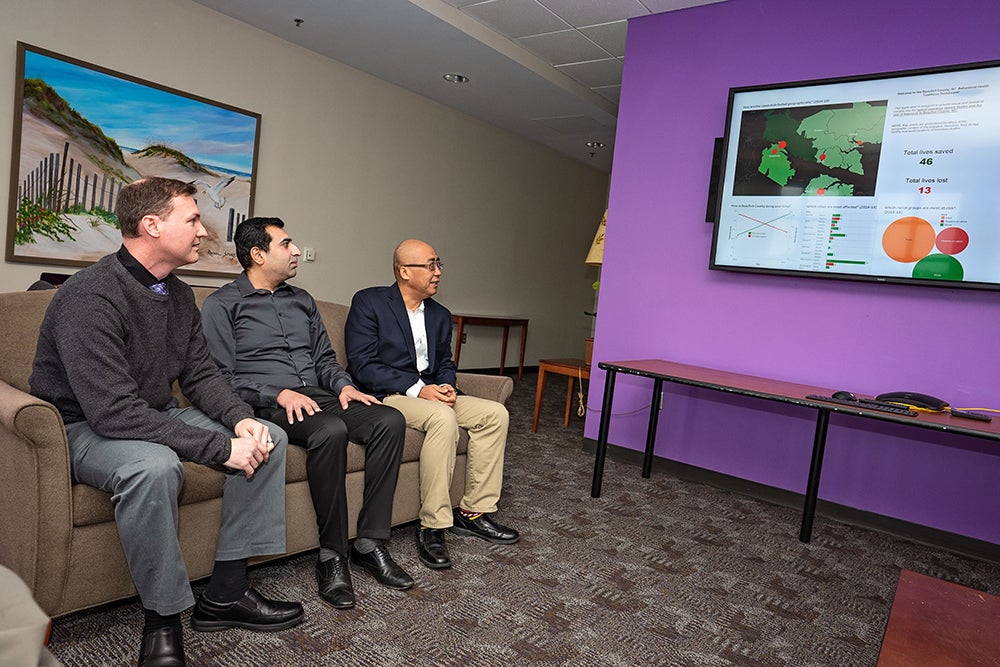CHANGE YOU CAN MEASURE
ECU faculty to develop data to measure effect of substance abuse interventions
A grant for more than $400,000 awarded to East Carolina University’s Department of Health Services & Information Management will allow Beaufort County health care professionals to measure the effectiveness of efforts to improve mental health and thwart substance abuse.
The three-year, $437,491 grant funded by the Kate B. Reynolds Charitable Trust will allow a team of faculty from ECU’s College of Allied Health Sciences to gather data from agencies in Beaufort County and build a data resource for the Beaufort County Behavioral Health Task Force.
Task force members realized the need for such a program after they began setting goals for community improvements in behavioral health, but realized they did not have data to establish a baseline and measure success.
The task force aims to reduce:
- The number of “familiar faces” regarding mental health, substance abuse and domestic violence
- Relapses for people with substance abuse and mental health problems by 20 percent
- Substance abuse and dependency, particularly with chronic pain patients, by 10 percent
- Deaths related to substance abuse and dependency, particularly with chronic pain patients and those prone to overdose by 10 percent
Another important goal for the task force is to significantly delay the initial use of alcohol or illegal drugs in children and adolescents.
While some of this type of data is more widely collected and more easily accessed, other data such as “familiar faces” is not generally kept, said Dr. Xiaoming Zeng, professor and chair in the Department of Health Services and Information Management (HSIM) and the principal investigator on the grant.
“You have general data about overdose cases, overdose deaths,” Zeng said. “Those are easy to get. But, once you get into the intervention part, you try to build a causal relationship between the metrics and also some of the resources that you have. There is no existing mechanism there.”

Task force members realized the need for such a program after they began setting goals for community improvements in behavioral health, but realized they did not have data to establish a baseline and measure success.
Although the grant was awarded to the HSIM department, the four-person team also includes the chair of the College of Allied Health Sciences’ Department of Addiction and Rehabilitation Studies’ Paul Toriello, who will guide the team in making sure they’re collecting relevant data, and will help finalize the task force’s action plan and suggest interventions based on the data collected.
The other two team members on the grant are HSIM faculty Dr. Ray Hylock, who specializes in data warehousing, and Dr. Akshat Kapoor, who specializes in data visualization and will be in charge of designing a way to display the data spacially and temporally.
But the first step, Zeng said, is speaking with health care agencies like the health care department, Vidant Medical Center, and the state health information exchange to get their buy-in.
“I think the challenge for the first two years is getting everyone on the same page and willing to share (data),” Zeng said. “It helps to build a data sharing mechanism. Once we have that we can use that information source for the next step, which is to help them to build a more solid action plan.”
Zeng said that once they’ve completed their work in Beaufort, their strategy could be translated to use in other areas facing similar issues.
“In many counties in rural, underserved areas they do have these types of needs to address mental health and substance abuse,” Zeng said. “If we become successful in one county, it means that all this could be portable to other counties.”
